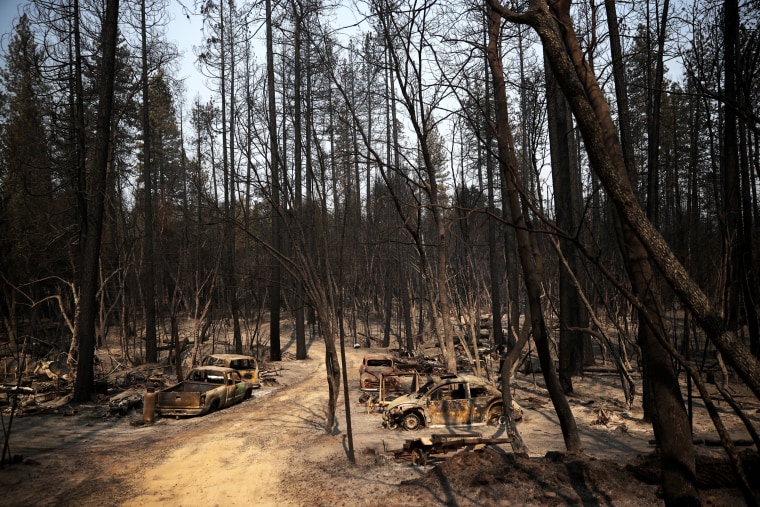Facebook announced Tuesday that it is launching a science information center to provide users with facts and resources around the climate crisis.
The new feature is the latest in a string of resource hubs that have enabled Facebook to set clear lines of demarcation on matters of fact and fiction.
But Facebook will not change its approach to combating climate misinformation outside the hub. It will continue to apply warning labels to demonstrably false information, but will not take down posts unless they pose an immediate safety risk.
"We believe a lot of our users are particularly interested in climate science," Nick Clegg, Facebook's vice president of global affairs, said in an interview Monday, adding that there is "a very strong political push around the world for more action.”
Facebook has also announced that its own global operations will achieve net zero carbon emissions and be 100 percent supported by renewable energy this year. It is now aiming to reach net zero carbon emissions across its supply chain within the next decade.
The announcement comes on the eve of the United Nations General Assembly, which will have a focus on climate change and environmental sustainability.
The actions provide Facebook, which liberals often criticize as being too impartial on political issues, an opportunity to align themselves with a core issue for many progressives and countries around the world.
Facebook's decision to refrain from taking more aggressive action on climate misinformation, however, will leave critics with plenty to complain about. Democratic politicians have recently called for Facebook to do better on climate content, arguing there's a loophole that exempts the topic from fact checking.
Facebook has long taken a hands-off approach to moderating speech, with CEO Mark Zuckerberg and other executives saying the company does not want to be "the arbiter of truth." The climate hub, like the Covid-19 and voting hubs before it, provide areas where Facebook can lean on scientific or legal experts to more aggressively distinguish between good and bad information.
But it's unclear how many users visit these hubs or if the information reaches even a fraction of the number of people that see viral misinformation.
With the climate hub, Facebook will anchor itself "religiously" in facts and data from the Intergovernmental Panel on Climate Change and its network of climate science partners, Clegg said. Among others, those tools will help groups that to date have raised more than $80 million for environmental causes on Facebook.
"We only remove stuff where there is an obvious link to immediate and impending real world harm," Clegg said. That argument is hardly likely to appease Facebook's critics in the climate community, who believe climate change poses very immediate "real world harm."
The initiative, led by Facebook's director of sustainability, Ed Palmieri, was sponsored by Clegg and Chris Cox, the longtime Facebook executive who recently returned to the company as chief product officer after a year's absence.
"We both so happen to share personal interest in the subject," Clegg said, citing his work on renewable energy as the U.K.'s deputy prime minister and Cox's own work with green groups during his time off.
Despite the overwhelming scientific evidence around climate change, the issue remains political and polarizing in the U.S., so Facebook's move is likely to draw some scrutiny. But Clegg said Facebook isn't trying to take a stand in any partisan political fight.
"It's only here in the United States where it [climate science] is a hyper-polarized thing, where it's a political act," he said. "In most jurisdictions around the world ... the expectation is only to do more."

